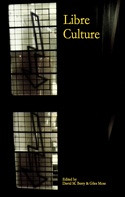Amy Brown, Greg Wilson (eds.): The Architecture of Open Source Applications, Vol I-II (2012)
Filed under book | Tags: · code, floss, free software, open source, programming, software


Architects look at thousands of buildings during their training, and study critiques of those buildings written by masters. In contrast, most software developers only ever get to know a handful of large programs well—usually programs they wrote themselves—and never study the great programs of history. As a result, they repeat one another’s mistakes rather than building on one another’s successes.
The goal of these two books is to change that. The authors of four dozen open source applications explain how their software is structured, and why. What are each program’s major components? How do they interact? And what did their builders learn during their development? In answering these questions, the contributors to these books provide unique insights into how they think.
If you are a junior developer, and want to learn how your more experienced colleagues think, these books are the place to start. If you are an intermediate or senior developer, and want to see how your peers have solved hard design problems, these books can help you too.
Published in March and May 2012
ISBN 9781257638017 (Vol I), 9781105571817 (Vol II)
Creative Commons Attribution 3.0 License Unported
432 and 390 pages
View online (HTML articles)
Comment (0)Lydia Pintscher (ed.): Open Advice: FOSS: What We Wish We Had Known When We Started (2012)
Filed under book | Tags: · code, community, floss, free software, open source, programming, software

Open Advice is a knowledge collection from a wide variety of Free Software projects. It answers the question what 42 prominent contributors would have liked to know when they started so you can get a head-start no matter how and where you contribute.
Free Software projects are changing the software landscape in impressive ways with dedicated users and innovative management. Each person contributes something to the movement in their own way and to their abilities and knowledge. This personal commitment and the power of collaboration over the internet is what makes Free Software great and what brought the authors of this book together.
This book is the answer to “What would you have liked to know when you started contributing?”. The authors give insights into the many different talents it takes to make a successful software project, coding of course but also design, translation, marketing and other skills. We are here to give you a head start if you are new. And if you have been contributing for a while already, we are here to give you some insight into other areas and projects.
With contributions by Georg Greve, Armijn Hemel, Evan Prodromou, Markus Kroetzsch, Felipe Ortega, Leslie Hawthorn, Kevin Ottens, Lydia Pintscher, Jeff Mitchell, Austin Appel, Thiago Macieira, Henri Bergius, Kai Blin, Ara Pulido, Andre Klapper, Jonathan Leto, Atul Jha, Rich Bowen, Anne Gentle, Shaun McCance, Runa Bhattacharjee, Guillaume Paumier, Federico Mena Quintero, Mairin Duffy Strode, Eugene Trounev, Robert Kaye, Jono Bacon, Alexandra Leisse, Jonathan Riddell, Thom May, Vincent Untz, Stuart Jarvis, Jos Poortvliet, Sally Khudairi, Noirin Plunkett, Dave Neary, Gareth J. Greenaway, Selena Deckelmann, Till Adam, Frank Karlitschek, Carlo Daffara, Dr. Till Jaeger, Shane Couglan
Published in 2012
ISBN 978-1-105-51493-7
Creative Commons BY-SA License
310 pages
PDF (PDF)
PDF (EPUB)
PDF (MOBI)
David M. Berry, Giles Moss (eds.): Libre Culture: Meditations on Free Culture, 2nd ed. (2008)
Filed under book | Tags: · code, commons, copyleft, creative commons, critical theory, floss, free culture, free software, free speech, freedom, intellectual property, open hardware, open source, software, technology

“Libre Culture is the essential expression of the free culture/copyleft movement. This anthology, brought together here for the first time, represents the early groundwork of Libre Society thought. Referring to the development of creativity and ideas, capital works to hoard and privatize the knowledge and meaning of what is created. Expression becomes monopolized, secured within an artificial market-scarcity enclave and finally presented as a novelty on the culture industry in order to benefit cloistered profit motives. In the way that physical resources such as forests or public services are free, Libre Culture argues for the freeing up of human ideas and expression from copyright bulwarks in all forms.”
Publisher Pygmalion Books, Winnipeg, 2008
Res Divini Juris Libre Commons Licence
172 pages
via archive.org
PDF, PDF (updated on 2017-10-25)
Comment (1)
